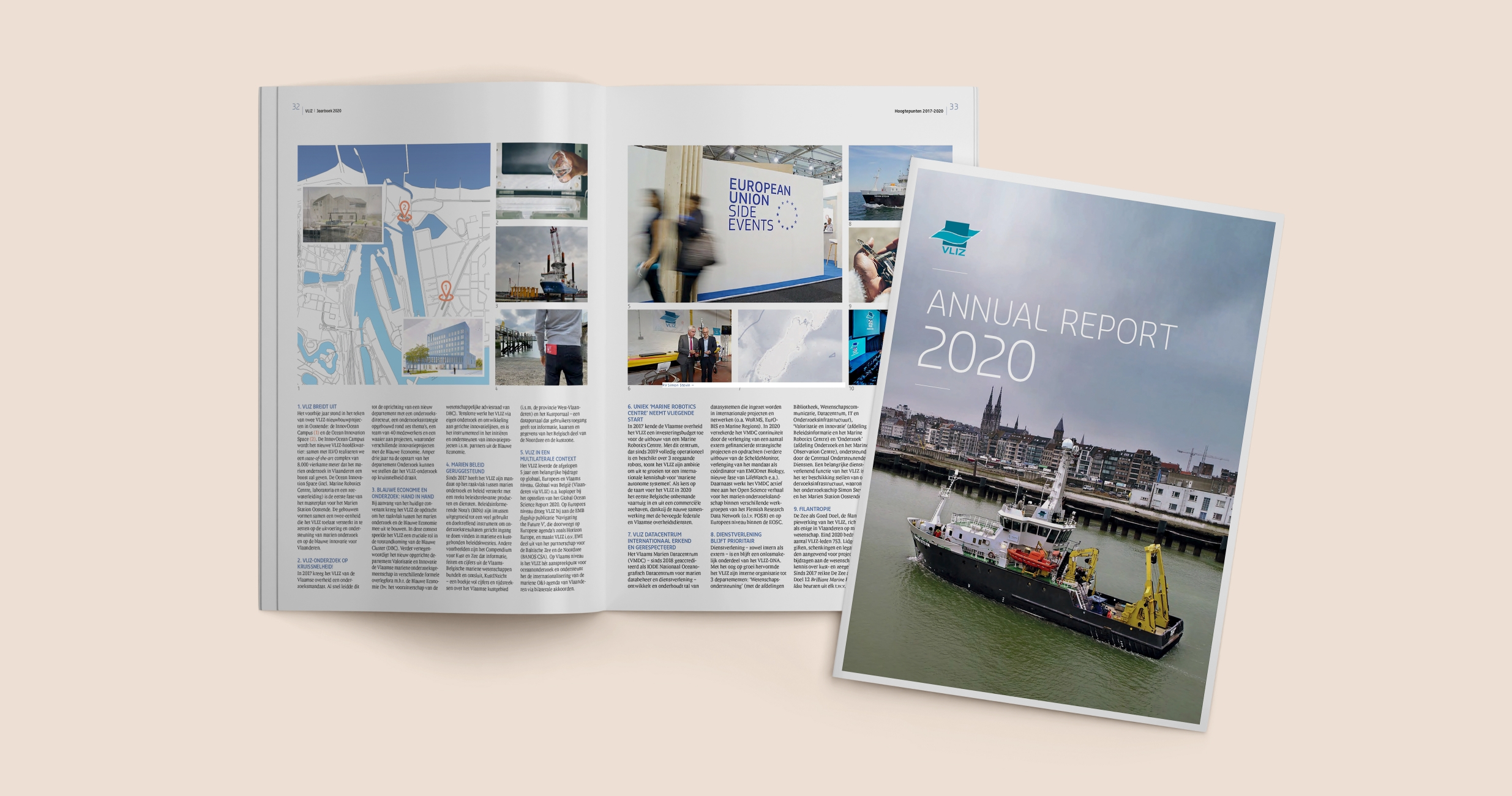20 / 04 / 2021

Photo: The 2020 Annual Report (VLIZ).
It goes without saying that 2020 was quite an unusual year. Also VLIZ was compelled to cancel, postpone or reshape a wide range of planned activities and events, including the festivities on the occasion of VLIZ’s 20th anniversary. However, COVID-19 also created opportunities. In 2020, VLIZ demonstrated its flexibility by swiftly adopting a new modus operandi and by reorganising its activities. In addition to the provision of basic services, projects and ongoing research, we also focused on new initiatives, resulting in a varied package of innovative research projects, new publications and revamped (digital) communication formats related to the COVID-19 pandemic. A selection of these initiatives is listed under the highlights of 2020.
Also in 2020, we made considerable progress in the two construction projects of VLIZ: the InnovOcean Campus and the Ocean Innovation Space. And only three years after the start-up of the Research department, it is now safe to say that research has picked up steam at VLIZ, as appears from the 54 peer-reviewed publications and 25 research projects undertaken in 2020 as well as the 16 doctoral research projects which VLIZ has initiated or facilitated since 2017. Other milestones from the past year are (1) the establishment of a legal framework for the time spent at sea by the research vessel (RV) Simon Stevin, (2) the large number of VLIZ policy-informing briefs, some of which dealing with the coronavirus, aimed at disseminating research results in marine and coastal policy issues, (3) the updated electronic VLIZ newsletter titled ‘Testerep magazine’, (4) the very first Belgian uncrewed surface vehicle that entered and left a commercial seaport with the help of pilots in an onshore control centre, (5) the consolidation of four ongoing data projects and initiatives in which the Flanders Marine Data and Information Centre and the VLIZ IT division play a crucial role, and (6) the publication of a comprehensive overview of the non-indigenous marine and coastal species that have become naturalised in the Belgian part of the North Sea and adjacent estuaries.
Last but not least, the 2020 Annual Report also offers a concise overview of the achievements of VLIZ since the start of the current management period in 2017. This in preparation of the evaluation of the institute in 2021, prior to the start of a new five-year management agreement between VLIZ and the Flemish government and the Province of West Flanders.
Both the English and Dutch version of the 2019 annual report can be consulted digitally (pdf) via the VLIZ website.